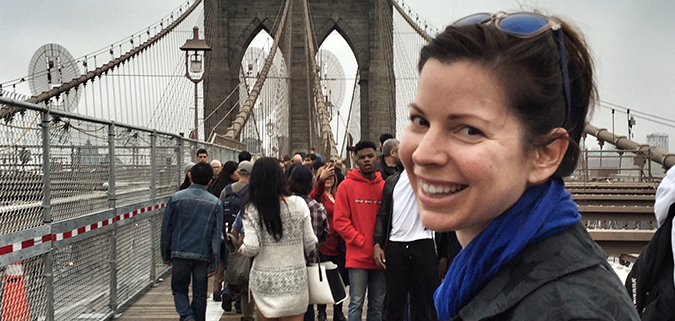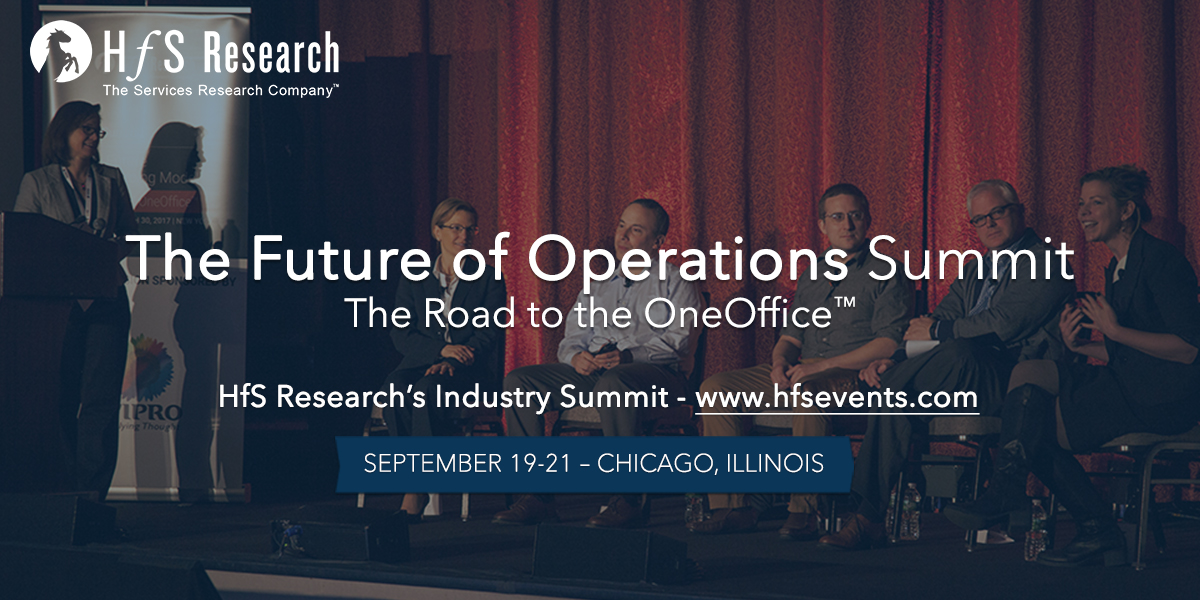We are excited to welcome Kate O’Neill, marketing guru, cultural strategist, and technology humanist, to keynote at our upcoming Chicago event. As HfS brings together the industry community to exchange ideas and experiences, Kate will be leading the discussion about how data and technology shape our experiences as humans. Kate will also be running a digital OneOffice breakout session with me.
I recently caught up with the “Sandra Bullock with brains by Microsoft” to hear what she’s working on and what to expect from her session at the summit. 
Melissa O’Brien, Research Director, HfS: Kate, we are really excited to have you joining us next month in Chicago. Our attendees are curious– you describe yourself as a “tech humanist”– can you tell us what you mean by that?
Kate O’Neill, Founder, KO Insights: I mean that data and technology is increasingly shaping our experiences as humans, and with every technological advancement, with every innovation, I want to encourage us to think about the impact on humans and the human experience.
In my last book, for example, Pixels and Place, I examined the convergence of physical and digital space, and how that convergence fundamentally happens through human interactions. I’m now working on another book in the same spirit.
Melissa: Tell us about the next book.
Kate: It’s coming together around AI, predictive analytics, and other forms and components of automation, and, again, how those are and will shape our experiences as humans. The world has been changing toward this automated systemic society for some time now, and I’m examining what that will look like for us, from a human-centered bias, as it continues.
One of the key questions, of course, is around the future of work and the workplace, since there’s a lot of anticipation and anxiety about the impact there. We’ve traditionally derived a great deal of our sense of accomplishment and contribution — our sense of meaning, really — from our work, and as the nature and composition of jobs change, it’s important that we consider what that will look like.
The big question in all of this is how we make sure we are emphasizing humanity and creating value for ourselves — both for humanity and for profit.
Melissa: What do you think this will mean for businesses as increasingly intelligent automation start to transform our human experience?
Kate: Well, one of the recurring areas of focus in my work is the alignment between two forces: the insights that well-modeled, data-rich experiences can provide to business about human behaviors and motivations, and the integration of data and technology into business and organizational processes. People talk a lot about digital transformation, but this is what it means to me: keeping human experience at the center, but taking advantage of the gains and efficiencies that data and technologies have to offer.
In addition, business needs to be responsive to and mindful of what’s happening at the intersections of the physical world with the digital experience layer. Because for the most part, where those worlds meet, it happens through us: through human interactions and transactions. Our movement through the world, our purchases, our interactions online — all of these create a data trail that is compelling and rich with patterns businesses can mine for clues about how to sell to people more effectively. And machine learning will continue to improve on how to harness that data.
Which means, on one hand, there’s huge opportunity for business growth and acceleration, but there’s also this huge looming economic question mark about the accelerating impact of automation on the workforce, and how that will change the mechanics of employment and of income, and even the fundamentals of value. I expect that we’ll increasingly place a premium on human interactions — and those that feel like human interactions.
That’s a lot going on! And I think it’s a tremendous opportunity for businesses to step out ahead of the competitive set and really bring all these forces into alignment — the customer experience, the data model, the operational deployment of smart and automated technologies. To do that really takes a deep understanding of what the business offers at a fundamental level, and dimensionalizing that purpose throughout all of these other parts and processes.
Melissa: That certainly is a lot… and I know our summit attendees will be eager to have these discussions next month. What can the folks attending our Chicago summit plan to learn about in your session?
Kate: I want to encourage people to think about all kinds of data and emerging technology like automation, artificial intelligence, chatbots, connected devices, and so on as opportunities to deliver more meaningful human experiences at scale. We’ll talk about why and how that can work in practice. There will probably be one or two mentions of cats, too, but I haven’t figured out yet how or why.
Melissa: Presentations are always better with cats…. Thanks for the preview, Kate! We are looking forward to your next book and hearing from you directly at the Chicago Summit.
Learn more about Kate’s session and the rest of the agenda for HfS’ Future of Operations Summit in Chicago (September 19-21).
Posted in : Digital Transformation







